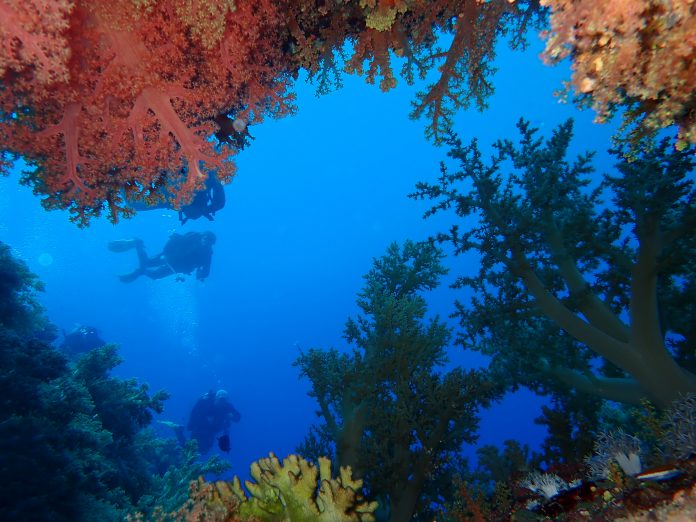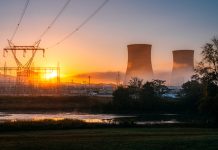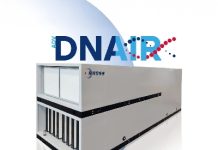Sarina Motmans from the West Flanders Development Agency POM, along with MET-CERTIFIED partners from Ghent University, the European Marine Energy Centre and the Dutch Marine Energy Centre underline the importance of marine energy test facilities when it comes to accelerating commercial deployment
The opportunities of marine energy are multiple and substantive: marine energy can play a significant role in the global energy transition, providing clean and predictable energy. It can help meet CO2 reduction targets, boost regional economies and create new jobs. In this respect, test facilities are playing a crucial role in accelerating the deployment of marine energy systems, by reducing risks and raising capital for commercialisation.
Tidal power developer, Orbital Power, after having completed their extensive test programme at the European Marine Energy Centre in Orkney, are now building their 2MW commercial device. Tocardo, after having tested for years at the Dutch Marine Energy Centre facilities, are scaling up towards commercial units. And wave energy developers like Seabased, Corpower, Laminaria, NEMOS and Floating Power Plant are all using various test facilities to demonstrate installation and operations and prove the survivability and performance of their technologies. Increasingly, test facilities are also asked to independently certify performance, loads or fish friendliness of devices, in order to de-risks technology and, thus, provide a good level of confidence to insurers, investors and licensing authorities. Test centres are cooperating across Europe, exchanging experience and data and helping the sector to converge. Test centres also give an impulse to local and regional economies.
Best practices and recommendations
To help marine test facilities further develop their pivotal role, a best practice study on marine energy test facilities has been conducted as a part of the MET-CER- TIFIED project1. This project aims to advance the marine energy sector through the adoption of internationally recognised standards and certification schemes.
The study consists of a state-of-the-art assessment of a number of marine test facilitates and a comparison with test facilities in other sources. Based on this analysis, strategic recommendations have been formulated regarding certification and standards, business models and marketing, as well as a call to action for policymakers to cooperate at local, regional and national levels, to simplify permitting and increase public funding for the sector.
Unlock marine energy’s full potential
The potential of marine energy can only be unlocked when all stakeholders are involved, including governments at all levels. Despite the strong regional interest and supportive European Union (EU)-ambitions, the sector reports a lack of support at the national level. There is insufficient long-term vision and often low-carbon support is targeted at the nuclear, wind and solar industry.
More interest comes from the local and regional level since marine energy can boost local and regional economies, provide jobs and make coastal communities more attractive. At the EU level, significant instruments are available for the sector, underpinned by the strategic Blue Growth vision.
Simplifying permitting
One obstacle all interviewed facilities were faced with is the complex and lengthy permitting procedures and high cost associated with the monitoring conditions. Developers see cheaper, faster and simplified consenting as one of the most critical benefits of using a test facility.
An effective approach would be to have fully pre-consented test sites. This means granting a permit for the test facility that covers all types of testing activity and technologies that may access the facilities during the operational lifespan. The “Rochdale Envelope” allows a project description to be broadly defined, within a number of agreed parameters. In this case, the technologies and alternatives described in an environmental impact assessment cover a certain range so that the potential worst-case scenario is assessed. Conducting the assessment upfront and seeking site-wide consents can save valuable time and costs for the developers. Pre-consented test sites allow developers to focus on environmental impacts that are specific to their project and develop proportionate monitoring programmes which comply with consent conditions.
The monitoring experiences from test facilities can help regulators to define reasonable measures for permits and improve the sector’s understanding of the potential environmental impacts associated with the technology. Most test facilities have built up close relations with the appropriate regulators, advisory authorities and stakeholders to mitigate any concerns and ensure monitoring programmes are relevant. In order to support these relationships, test facilities have adopted best practices including: in-depth consultation during the environmental impact assessment and continuous stakeholder engagement exercises during the development of the test facility and throughout the operation.
Increase public funding
Another observation from the study is that public funding for both test facilities and marine energy developers is vital to help develop this promising sector. All interviewed test facilities rely on public funding in one way or another. Most are not-for-profit entities, supported by both public and private partners. Usually, test facilities need significant early-stage funding support and are fully or partially state-owned. Once operational, the operations and further development are based on a combination of EU, state and private funds.
In addition to the public funding of the test facility, continued funding and support to the marine energy industry and specifically developers is crucial. Developers face challenges in securing both public and private financing for early-phase projects, especially those with significant technology risk and capital intensity. This gap in commercial-scale financing hinders advanced energy technologies to become marketable. In addition, most of the support is intended for the test phase, yet the greatest costs and risks are related to marine operations, resulting in a market getting stuck just before the commercial phase.
Best practices show that collaboration through European programmes that provide funding for testing is beneficial. Establishment of similar funding programmes could help in the development of marine energy.
The study carried out under the MET-CERTIFIED project, calls for policymakers at all levels to give marine energy the attention it deserves and help unlock its potential by facilitating consenting procedures and increasing public funding for its testing. The complete study can be consulted at http://www.met-certified.eu/downloads (D2.8.1).
1 MET-CERTIFIED is funded by the European Interreg 2 Seas programme and co-financed by the European Fund for Regional Development (ERFD). Financial support is also provided by the Ministry of Economic Affairs in the Netherlands, the Province of South-Holland and North-Holland and the Belgian Province of West Flanders.
With contributions from MET-CERTIFIED partners:
Dutch Marine Energy Centre
Peter Scheijgrond
Project Coordinator MET-CERTIFIED
Ghent University
European Marine Energy Centre











